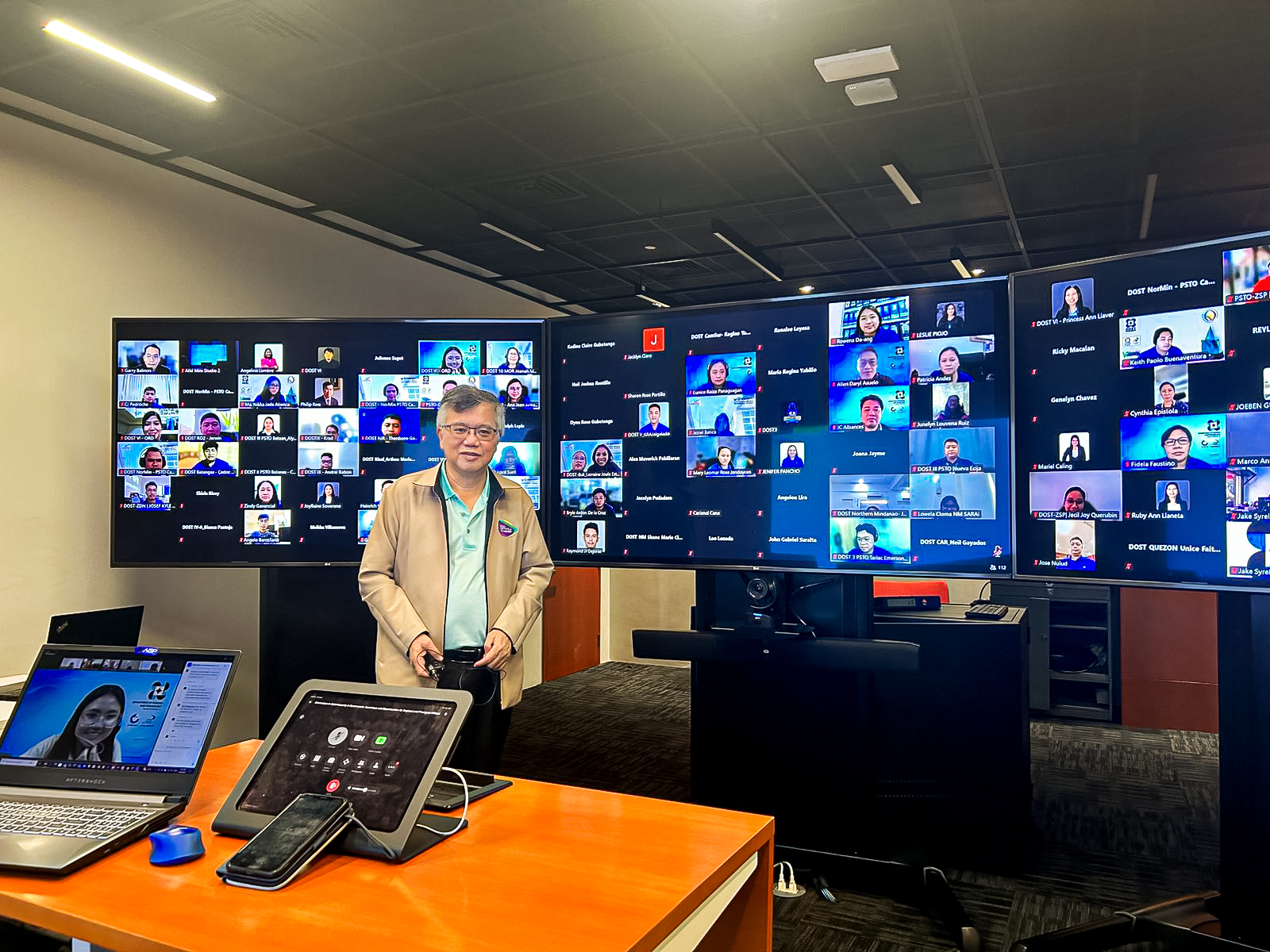Building a Cyber-Ready Workforce: Lessons from the DOST Cybersecurity Orientation at AIM
Cybersecurity is now a frontline issue for national security and innovation. On 5 August 2025, the Department of Science and Technology (DOST) brought together over 111 participants from its regional and provincial offices for an online orientation that tackled today’s most urgent digital threats. The session also demonstrated how the Master in Cybersecurity (MCS) program at the Asian Institute of Management (AIM) equips professionals to safeguard critical systems, strengthen governance, and lead secure digital transformation across government and industry.
In the session, Prof. Philip Teow Huat Kwa, Academic Program Director of the MCS program, emphasized that cybersecurity is an essential skill in today’s digital and AI-driven world and outlined the program’s three pillars or skills for effective cybersecurity: Governance, Technical, and Leadership.
“Generative AI is here now, the question is not whether we should engage with it, but how we can leverage it securely,” Prof Kwa said. “These skills are not optional; they are enablers. We must keep innovation safe and secure and that requires not just technical know-how but also strong leadership.”
LearnShield: Applied Cybersecurity in Government
The session also featured John Christian D. Albances, Master of Cybersecurity 2026, and Science Research Specialist II at DOST VI. He presented his capstone project, LearnShield, a mobile-based learning app designed to enhance cybersecurity awareness among government employees. This capstone project, required of all MCS students, is a practical application of the program’s learnings where participants design and implement solutions to real-world cybersecurity challenges.
Albances’ LearnShield applies Security-by-Design principles, stronger vulnerability assessment practices, and enhanced privacy safeguards. It has since grown into a functional platform that equips hundreds of government workers to spot phishing attempts, recognize system vulnerabilities, and adopt safe digital practices in their daily operations.
“Cybersecurity must begin at the start of digital transformation, not after,” Albances emphasized, underscoring how his work with LearnShield reflects the mindset shift encouraged by the program.
Master in Cybersecurity Program: Building a Cyber-Ready Workforce
Through the insights of Prof. Kwa and the real-world application shared by Albances, the orientation underscored how the Master in Cybersecurity program develops leaders with the strategic, technical, and governance skills to secure digital innovation. More than theory, the program reflects the Asian Institute of Management’s role as a national partner in building cyber resilience—where safeguarding data and systems is recognized as essential to national security and nation building.
Ready to strengthen your organization’s cyber resilience? Learn more about the Master in Cybersecurity program at the Asian Institute of Management and take the next step toward becoming a leader in the digital defense landscape.


